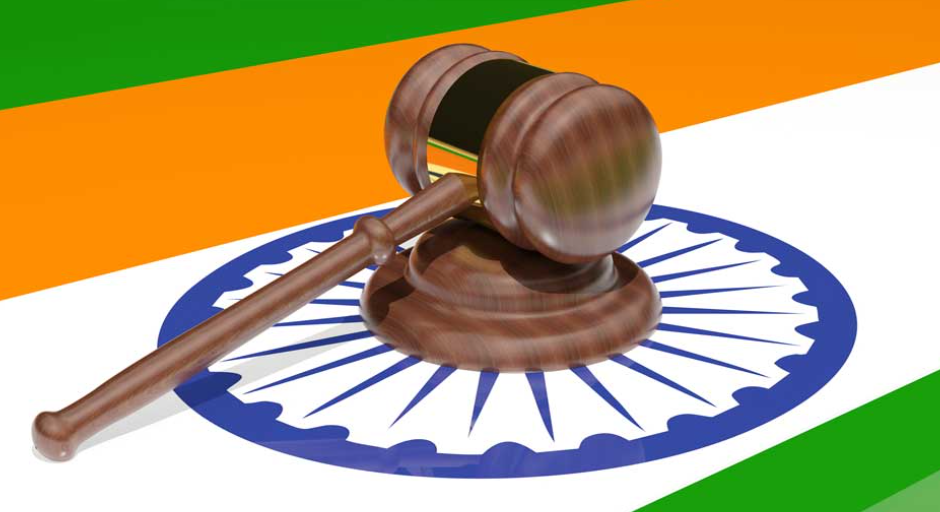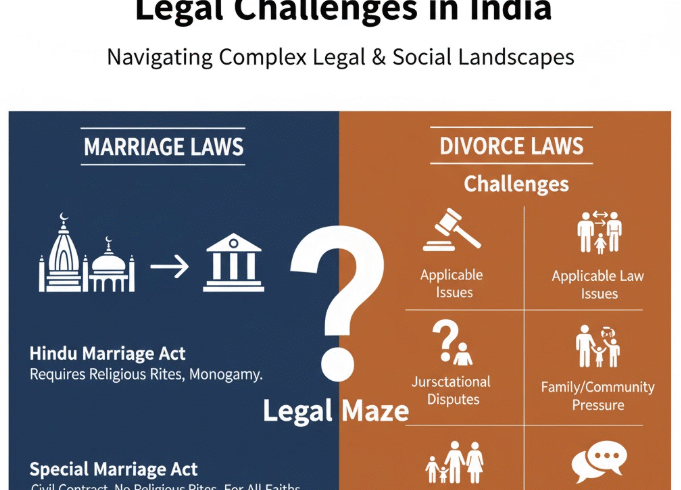7 Rights That Every Indian Tax-Payer Must Know
A Complete Guide to Your Rights Under Indian Tax Laws | And you have more rights than you think… | Updated for 2025
It is a responsibility of every earning citizen to pay their due taxes. But did you know that when it comes to paying taxes, not only are they your responsibility but there are also a number of legal rights granted that help protect you from being taken advantage of by tax authorities? Many Indian taxpayers are not aware of these rights and can suffer from unnecessary stress, financial loss or even legal problems as a result.
The Indian system of taxation, regulated by the Income Tax Act, 1961 and enforced by the Income Tax department has wisdom to protect taxpayers. Whether you’re a salaried worker, self-employed or work as a contractor, understanding your rights can help empower you to deal with tax notices, assessments and audits.
This guide will tell you about seven crucial rights every tax payer in India should be aware of. These protections, from your right to appeal unfair orders to the right of privacy, safeguard that you are treated fairly through every step of your journey.
1. Right to Receive Fair Treatment and Respect
It is the right of every taxpayer in India to be treated with dignity and respect by tax officials. This may seem obvious, but it’s an important legal safeguard that many people don’t understand they have.
Courtesy and respect for the taxpayer are now part of an officer’s professional DNA thanks to the Central Board of Direct Taxes (CBDT) which unveiled the Taxpayers’ Charter in 2020. They can’t use intimidating language, bully you, or be rude in anyway during any contact – whether at a tax office, while carrying out a survey or in writing.
What This Means for You:
- You should find the officers ready to listen to your enquiry in courteous manner and reply clearly to questions you have.
- They cannot harass or pressure you into agreeing to a tax claim without valid explanation.
- Even if you are misbehaved with by any tax official, you can make a complaint to his senior or the CBDT.
- All language should be in a layman language that you can understand.
In case a tax officer acts in bad faith, make written record of such incidents with dates, time and details. You can bring such behaviour to the notice of the official grievance redressal mechanism on Income Tax website or write to the Principal Chief Commissioner of Income Tax in your jurisdiction.
2. Right to Information and Assistance
The rules around taxes are a mess, as they often are in India’s complex tax system. This is why you have a legal right to get clear information and help from the Income Tax Department.
The tax department is legally obligated to inform you about the following upon request:
- How to correctly file your tax returns
- What documents you need for different tax processes
- Your refund or notice of assessment position
- The information you are told or ordered to deal with
- Your rights and responsibilities
You can get these details from official website of Income Tax E-filing portal, by calling up the helpline number (1800 180 1961), walk-in to your local Aaykar Seva Kendra or file an RTI under RTI Act 2005.
Information Channels
| Information Channel | Best Suited For | Time Taken |
|---|---|---|
| Income Tax Helpline | Basic refund and filing assistance | Within a few minutes |
| E-filing Portal | Return status, forms download, notices | Instant |
| Aaykar Seva Kendra | One-on-one guidance on complex matters | On the same day with appointment |
| RTI Application | Full information on your case or procedures | Within one month of applying |
| Grievance Redressal | Complaints regarding service | Within 15-30 days |
3. Right to Appeal Against Tax Orders
One of the greatest rights you possess, as a taxpayer, is the right to fight any order or decision that you feel is wrong or unfair. There is a multi-tier tax appellate jurisdiction in the Indian taxation system to do justice.
The Appeals Hierarchy
If you have been served an assessment order, penalty notice, and other order by the Assessing Officer that you do not agree with, then you can make an appeal to higher authorities. Here is how the appeals process operates:
Tax Appeals Process in India
Level 1: Commissioner of Income Tax (Appeals) CIT(A)
This is your initial level of appeal. You must do this within 30 days of the date you get the order you want to challenge. The CIT(A) will hear your case on its merit and may either cut down, annul or uphold the tax demand.
Level 2: Income Tax Appellate Tribunal (ITAT)
If you are not happy with the decision of the CIT(A), you can appeal to the ITAT within 60 days. It’s a fact-finding and legal body in a niche area. Taxpayers prevail in many of these cases.
Level 3: High Court
Appeals may be taken to the High Court only on questions of law (and not on findings of fact). You have to file within 120 days of the ITAT order. The amount of tax in question should generally be more than ₹1 lakh.
Level 4: Supreme Court of India
This is the court of last resort. Matters come here only when there are important legal questions involved or when there is conflict in the judgments of different High Courts. That’s a rarefied spot for any tax case to reach.
Important: Pending appeal, you may be required to deposit at least a part of the tax in dispute (normally 20% for CIT(A) appeals). The rest is stayed while the appeals are resolved.
For more detailed legal guidance on tax matters, visit https://zistalegalis.com.
4. Right to Privacy and Confidentiality
Your tax data is one of the most private material you have, and it’s a crime for someone to disclose it. Income Tax Act also has confidentiality prohibitions which keep otherwise private and personal financial records out of unauthorized hands.
As per Section 138 of the Income Tax Act, a fine for anyone leaking your details would be imposed if you submit a tax return or make any disclosure during assessment etc to the tax department. Tax officers and department staffers who leak your information can also be subjected to serious penalties including jail time.
What’s Protected:
- The income information and sources of money coming in to you
- Bank details and financial transaction details
- Investment details and property holdings
- Business information and profit margins
- Information of a personal nature in tax returns
Exceptions to Privacy
Your tax info can only be shared in certain situations:
- To other government agencies, where the disclosure is necessary and appropriate for official purposes (with authorization)
- In court cases where your tax details are pertinent
- When requested by law enforcement authorities in connection with an investigation of a crime of similar magnitude
- For exchange of international tax information under treaties India has entered into
If at any point, you learn that your income tax data has been leaked or misused, you have the right to lodge a complaint with the CBDT and can even sue the offender should you choose to do so.

5. The Right to Have a Tax Professional Represent You
Tax issues can be complex and technical matters. That’s why Indian law entitles you to be accompanied by an expert in the matter during tax proceedings. The tax man doesn’t have to be your enemy.
You may represent yourself or authorize one of the following to act on your behalf, as described in Section 288 of the Income Tax Act:
- Chartered Accountants (CA): They can deal and represent you on all tax matters such as filing return and appeals.
- Advocates: Attorneys can advocate on your behalf, particularly in legal arguments or court proceedings.
- Tax Return Preparers: Licensed professionals who can prepare your return and provide basic advice.
- Family Members or Employees: Sometimes a family member or your own employee can file on your behalf IF they have the proper authorization.
Typical Tax Scenarios in Need of Professional Help
- Tax Notices & Assessments: 85%
- Appeals & Disputes: 70%
- Tax Audits: 60%
- Complex Returns: 45%
- Business Taxation: 55%
To appoint a representative, you have to file Form 35, which can be obtained from the Income Tax site. This form gives your professional representative authority to represent you before the department.
6. Right to Decision and Refund Within Time Frame
Endless waiting for the refunds or assessment orders of tax is a pain. Indian law reflects this and delineates the timelines by when the tax department has to act.
Assessment Time Limits
The Assessing Officer simply cannot keep your file open forever. Assessment time limits are specified under section 153 of the Income Tax Act, as follows:
- Regular Assessment: Within period of 21 months from end of the financial year
- Reassessment: 4 years from the end relevant assessment year (could be extended to 6 years in certain cases of serious evasion)
- Search Cases: Within 2 years from the FY in which search was carried out
In case these deadlines are not met by the tax department, then they lose powers to make an assessment or raise a demand for that period. This protection spares taxpayers from being harassed with old cases.
Refund Processing Times
When you are entitled to a refund (meaning that you’ve paid more than your share), the department must make it within a reasonable period of time. Most refunds are now processed between 20-45 days after filing of return in case there are no discrepancies.
Interest on Delayed Refunds
Here’s a perk many taxpayers don’t know about: If your refund is later than usual through no fault of yours, you are entitled to have interest at 0.5% per month (6% annually) paid on top of the refund. This interest is from 1st April of the assessment year till date on which refund is granted.
You can check the status of your refund on the Income Tax e-filing website with your PAN and assessment year. If there is an unexplained delay, you can raise a grievance through the portal or contact the Aaykar Seva Kendra.
7. Right to Correction and Revision
Under Indian tax law, anybody can mess up. You may also have the right to correct errors in information in your return and request an administrative review of certain tax decisions.
Revising Your Income Tax Return
If you find an error in the return filed (such as omission of income, claiming wrong deductions or calculation errors), then file a revised return under section 139(5). You can do this under these conditions:
- You may file a revised return before the expiry of one year from the end of relevant assessment year or completion of assessment, whichever is earlier.
- You can revise as many times as you want.
- Every update completely replaces the previous return.
- If a notice u/s 143(2) has been issued to you, then no revisions shall be available.
Rectification of Mistakes in Orders
Under Section 154, both you and the Assessing Officer can request rectification of “mistakes apparent from the record” in any tax order. These are patent mistakes such as errors of calculation, clerical errors or the application of a clear legal provision contrary to its intentions.
A rectification request needs to be submitted within 4 years of the end of financial year in which it was issued. The Assessing Officer shall pass an order in respect of your application within 6 months.
Revision by Commissioner
Section 264 provides for another option: you can request the Commissioner of Income Tax to review an order that you think is wrong or unjust. This is not an appeal, and you may use it whenever you have not already appealed or the time for appealing has expired.
However, there are a few roadblocks to this: You need to apply for the revision within one year of the decision being made and secondly, if you appeal an order then the Commissioner cannot revise it.
-
🔒 Know when tax evasion becomes a crime. Learn more: Legal Insights – When Tax Evasion Turns Into Crime
Claim Your Tax Rights
Understanding your rights as a taxpayer isn’t only about safeguarding yourself — it’s also about making sure the tax system functions fairly for everyone. The seven rights we pointed out are not just made up, they are the law and help to equalize the power between taxpayers and tax bureaucrats.
Remember these key takeaways:
- Always keep accurate records of income, expenses and all tax information
- Respond to tax notices promptly, but do not rush to accept claims you don’t believe you owe
- When dealing with complicated issues beyond your expertise don’t be afraid to get some professional help on taxes
- If there’s a tax order you think is unfair, go through the appeals process—lots of taxpayers succeed on appeal
- Stay informed about tax law developments via official government sources
The tax administration in India has seen substantial progress, shifting focus toward the rights of taxpayers and digital convenience. The Taxpayers’ Charter launched in 2020 was a major milestone in delivering more transparency and accountability into the system.
Act as a responsible citizen: pay your taxes honestly and in time. But as a vigilant taxpayer, hold the line on your legal rights. The tax office is there to collect what is due and not to bully or abuse taxpayers. When you understand and assert your rights, the whole tax system works better for everyone.
Be informed, be compliant and above all be confident in your rights as an Indian taxpayer.
For comprehensive legal support and tax consultation, visit https://zistalegalis.com.

Frequently Asked Questions
Q1: Can my bank account be frozen by the Income Tax Department without intimation?
No, the taxman cannot freeze your bank account without both informing you and adhering to due process. The first thing they have to do is an assessment order saying how much tax you owe, give you a chance to pay, and then only if they can’t get it any other way can they seize your bank account. Even then, they must furnish you a notice first if they want to do so. You can challenge the frozen account by way of an appeal / writ if it does not follow the due process for freeze.
Q2: What do I do if I get a tax notice and don’t understand it?
One, don’t trash it — tax notices have a time limit for any response. Read the notice thoroughly and identify whether it is a scrutiny, demand or rectification notice. For details about your case, visit the Income Tax portal. If you’re in doubt, seek the advice of a Chartered Accountant or tax adviser at once. They can help you get a handle on the issue and possibly prepare to respond. Remember, you may ask the Assessing Officer to explain as well.
Q3: How long does tax department have to refund me once I file a return?
If your refund is processed (with no problem), refunds are usually made within 20-45 days. But it could certainly take longer if there are hitches or your return is singled out for review. If the delay is deemed unreasonable and not your fault, you have a right to interest equal to 6% on that refund amount each year. You may be able to monitor the status of your refund on the Income Tax e-filing website.
Q4: Can I represent myself in a tax case or do I need an expert?
In all tax matters, you certainly have the right to represent yourself. But tax matters can be downright technical, and there is no question that you are better served by a qualified professional (say a CA or tax attorney) for this, as the chances of winning the matter are best when it goes to assessment, appeal and disputes. As for the simple issues like filing returns or directly responding to basic notices, you can sort these on your own with knowledge available on the Income Tax site.
Q5: What if I fail to file the appeal on time?
Should you be out of time to appeal, you can accompany your appeal with a condonation of delay application explaining why the appeal is late. The appellate authority may condone delay for good reasons. There are, however, maximum time restrictions even for belated appeals (normally one year in case of CIT(A)’s orders). When in doubt, you should file within the original time limit to prevent any future complications.
Q6: Can I trust Income Tax department with my tax records and personal details?
Yes, under section 138 of the Income Tax Act your tax information is given stringent protection from being disclosed. Tax authorities are not permitted to reveal your information to unauthorized individuals, and can be criminally liable if they do. Your data can only be shared in certain legal circumstances, which include court cases, necessary government requests and via international tax treaties. In case you suspect any confidentiality breach, you can register a formal complaint with the CBDT.
Q7: Can the tax department demand the tax for very old years?
No, they have time limits on the assessments. The department is not empowered to issue an order of assessment for a year beyond the period prescribed in Section 153 of the Act. For normal instances, it is 21 months after the end of the financial year. For reopening of old cases (reassessment), they have 4 years in regular cases and 6 years in case where there is income escaping assessment. Beyond these bounds, it cannot ask a single penny for the year.
Editor’s note: This article is for informational purposes only and is not an offer of tax or legal advice. Tax laws change and everyone’s financial situation is different. Do remember to verify the same with a Chartered Accountant or tax expert for its applicability to your circumstances.





